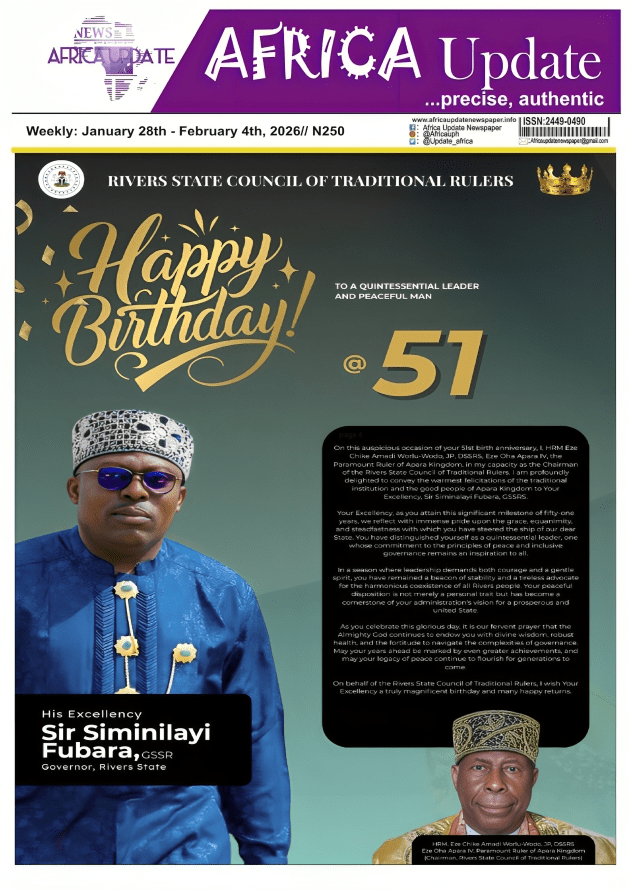
By Amieyeofori Ibim
The Rivers State Independent Electoral Commission (RSIEC) has, in recent days, presented a defense of its controversial decision to proceed with the August 30 local government elections. According to statements by its commissioners, the commission insists it has not released a new timetable but is merely implementing one previously issued by its now-dissolved predecessor. This explanation is not only logically flawed but also legally defective and morally untenable.
For the avoidance of doubt, the RSIEC that exists today is not a continuation of the previous commission. The former RSIEC, led by retired Justice Adolphus Enebele, was officially dissolved. A new commission, with new commissioners and new leadership, was appointed and sworn in. By any legal and institutional standard, this marks the beginning of a new body—not a continuation.
Therefore, the claim that the current RSIEC can “rely” on the timetable of a defunct commission is a legal absurdity. Electoral commissions, like any public institution, derive their legitimacy from the laws that govern them. Once a commission is dissolved, its legal personality ceases to exist. Any timetable it had issued before its dissolution cannot be presumed binding unless revalidated through a lawful and transparent process.
Even if one were to entertain the idea of continuity, the law is unambiguous about the procedures required for a valid election. Section 28 of the Electoral Act clearly mandates that political parties be given a minimum of 90 days’ notice before the date of the election. Has this statutory requirement been met under the authority of the new RSIEC? The answer is a resounding no.
The Independent National Electoral Commission (INEC), Nigeria’s apex electoral body, has already advised that the Rivers State electoral process falls short of this legal requirement. Rather than heed that counsel, RSIEC has chosen to double down on procedural shortcuts and political gymnastics. This is not the behavior of a commission committed to fairness or legality—it is the conduct of an agency determined to serve political ends.
One must also scrutinize RSIEC’s convenient claim that “almost all registered political parties” have picked up expression of interest forms. While this may sound impressive at face value, it is entirely irrelevant to the fundamental issue of legality. Participation does not legitimize an unlawful process. A flawed and rushed election remains a flawed and rushed election, no matter how many parties participate.
Even more troubling is RSIEC’s claim that it is “not aware of any factions within the APC in Rivers State.” This statement is a glaring case of willful blindness. The factional crisis within the Rivers APC has been well-documented and widely reported. There have been court cases, rival congresses, and public disputes. To claim ignorance of such open political warfare is to insult the intelligence of the public.
An electoral commission has a duty—not just to conduct elections—but to ensure that those elections are inclusive, peaceful, and credible. Turning a blind eye to internal party crises, or pretending they do not exist, is a dereliction of that duty. It also sets the stage for legal challenges that could nullify the entire process.
The defense by Professor Chidi Halliday, RSIEC’s Commissioner for Administration and Legal Matters, also falls flat. His claim that the commission is “acting in line with relevant laws” is empty rhetoric unless it is backed by evidence. Where is the new timetable issued by the new commission? Where is the documentation that confirms compliance with the 90-day notice rule?
Democracy thrives on transparency, not vagueness. For an election to be credible, every step must be above board. The absence of a new, independently issued timetable by the current RSIEC undermines public trust and makes the process susceptible to manipulation. No serious democracy would accept such procedural laziness—or worse, calculated evasion.
What we are witnessing is a dangerous normalization of illegality. By attempting to proceed with an election under a lapsed timetable, RSIEC is setting a precedent that rules, laws, and due process can be bypassed for expediency. This is the very definition of institutional decay—and it must be resisted.
The people of Rivers State have long suffered from the effects of political instability and elite manipulation. Local government elections are an opportunity to decentralize power and bring governance closer to the people. But when those elections are riddled with legal inconsistencies and questionable motives, they only reinforce public cynicism and apathy.
If RSIEC truly has nothing to hide, it should not be afraid to go back to the drawing board. It should issue a new timetable in accordance with the law, give all parties ample time to prepare, and allow INEC and civil society to observe its activities. That is how a credible commission behaves—not by clinging to the ghost of a dissolved entity.
The stakes are too high for shortcuts and cover-ups. An election conducted in violation of the law is a constitutional fraud. It robs the electorate of genuine choice, burdens the judiciary with avoidable litigation, and taints the legitimacy of the winners. It is a recipe for instability.
Therefore, RSIEC must retrace its steps before it plunges the state into another cycle of illegality and crisis. The people of Rivers State deserve better. Nigeria’s democracy deserves better. And history will not be kind to those who allow short-term political interests to override the rule of law and the will of the people.
Amieyeofori Ibim is former Editor of The Tide Newspapers, political analyst and public affairs commentator.
ibimdarlinton@gmail.com.







